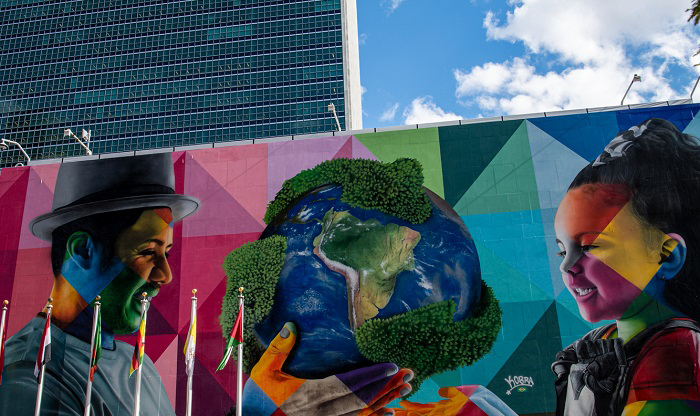Globally, there has been slow progress towards the Sustainable Development Goals including targets on poverty, hunger, and climate, but there are also regional variations in the implementation and progress towards the goals that were observed.
According to the 2023 data released by the United Nations, numerous countries were noted for weak progress on the targets of the SDGs, with some even regressing below the 2015 baseline set when the SDG was introduced. Half of these countries exhibited moderate or severe deviations from the expected outcomes outlined in the agenda. The significant number of countries facing challenges underscored the need for urgent action, given the potential impact on achieving a sustainable future.

In the Asia-Pacific Region, there are areas where the region has progressed but regressed in climate action and responsible consumption. Given the rising energy demands, an increase in investment in coal production was seen in previous years while the region struggled to accelerate the transition to clean energy. What is crucial for the region is greater investment in sustainable and greener pathways to social and economic development.
In the Philippines, progress towards the achievement of the SDGs remains a big challenge with the pandemic reversing most of the country’s gains. The good news is that according to the 2023 SDG Report, the Philippines has successfully achieved SDG 12, Responsible Consumption and Production and is on track or maintaining achievement in SDG 6, Clean Water and Sanitation. Similarly, the Philippines is actively progressing in several SDGs, including zero hunger, good health and well-being, quality education, gender equality, decent work and economic growth, life below water, and climate action but significant challenges remain in these areas.
Since the adoption of the SDGs in 2015, the Philippines has been a firm advocate of the SDGs and has supported its implementation, encouraging both public and private companies to carry out sustainability initiatives and advance businesses and communities towards the goals.
Globally, many of the commitments towards the SDGs urgently need transformative action but how can we begin in accelerating actions and confront the growing challenges impacting the SDGs?
The SDG Stimulus. The UN Secretary-General’s Stimulus Plan emphasizes the need to address the short-term urgencies and the long-term sustainable development finance. This calls for a significant increase in financing for sustainable development including investments in renewable energy, universal social protection, decent job creation, healthcare, quality education, and urban infrastructure, among others.
SDG Summit of the Future 2023. A significant action during the summit was the adoption by consensus of a negotiated political declaration of member states’ commitment to bold, ambitious and transformative actions – with financing and reform of the financial institutions as key ingredients in moving forward.
Public-Private Collaboration to Accelerate SDG Progress. In the Philippines, national development plans and policy agendas are aligned with the SDGs. Aside from the national level, local governments’ initiatives play a pivotal role in driving change in their respective communities. As for private companies and publicly listed companies, who actively support the goals, they too are aligning their efforts to contributing to the 17 goals, and largely prioritizing areas where they have a direct impact.
Opportunities in 2024
This year, numerous high-level events will convene world leaders together to forge a new consensus to deliver a better present and safeguard the future. These include the 9th Multistakeholder Forum on Science, Technology, and Innovation (STI Forum) for the Sustainable Development Goals in May 2024, the High-Level Political Forum 2024 in July to reinforce the agenda and eradicate poverty, and the United Nations Summit of the Future in September 2024 for a Multilateral Solutions for a Better Tomorrow.
Technological Advances as SDG Catalyst. Demand for data has unleashed technological advances that include more inclusive approaches and modern ways to collect data such as web-based, satellite imagery, citizen-generated or digital methods that support advances to the SDGs. Valuable insights and more effective actions are gained by harnessing the power of data.
In the country, the Philippine Statistics Authority (PSA) together with Institutions in charge of SDG Monitoring, has taken significant strides in capturing valuable amounts of data from about 155 indicators and monitors the country’s progress against the SDGs.
Amid ongoing technological advancements, the relevance of SDGs has heightened, particularly as society grapples with escalating concerns related to security and the workforce. To confront the growing challenges impacting SDGs, this innovation can be harnessed effectively, with online platforms serving as valuable tools to deepen understanding of current issues and outline more effective strategies for achieving prosperity for all.
This post is part of ReVerb Brand Communications (ReVerb) Sustainability Communications series. ReVerb, a member of the PAGEONE Group, is a trusted communications services agency whose work encompasses public relations, brand and sustainability communications, editorial and visual storytelling, and reporting services aligned with the Global Reporting Initiative and Integrated Reporting frameworks.
